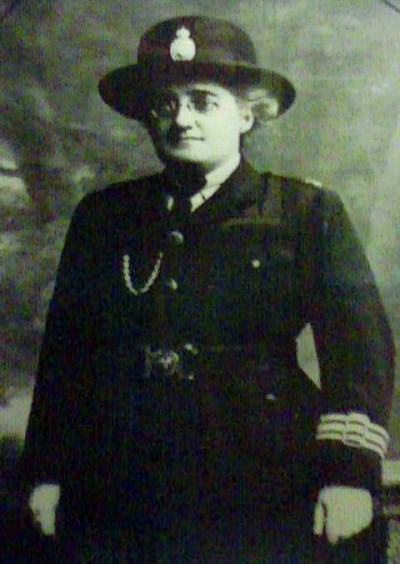 This month marks the 100th anniversary of the first British female police constable with the power of arrest, Edith Smith (right). The documentary below looks back at the history of women in the police force over the past hundred years, and how the role, attitudes (of both the public as well as their male colleagues) and even the uniform has changed during that time. Interesting to discover that the organized format started as the result of two effectively “vigilante” groups, who were formed to carry out volunteer patrols. One was mainly suffragettes, who were also fighting at the time for the right to work; the other, more genteel group of middle-class ladies, were the ones who obtained official sanction. At this time, the Great War was taking place, and just as World War II opened the doors to women in many areas, so did this conflict, with a large percentage of the male population being enlisted into the armed services.
This month marks the 100th anniversary of the first British female police constable with the power of arrest, Edith Smith (right). The documentary below looks back at the history of women in the police force over the past hundred years, and how the role, attitudes (of both the public as well as their male colleagues) and even the uniform has changed during that time. Interesting to discover that the organized format started as the result of two effectively “vigilante” groups, who were formed to carry out volunteer patrols. One was mainly suffragettes, who were also fighting at the time for the right to work; the other, more genteel group of middle-class ladies, were the ones who obtained official sanction. At this time, the Great War was taking place, and just as World War II opened the doors to women in many areas, so did this conflict, with a large percentage of the male population being enlisted into the armed services.
Initially, women constables were tasked solely with handling children and other women – one of Smith’s main tasks was to address the prostitution problem, due to the large army presence near the town of Grantham where she was stationed. There were also restrictions which were not applied equally to men: they were forced to quit the force if they got married, it being deemed incompatible with the job. Some of these took a very long time to overcome; it wasn’t until 1994, for example, that policewomen in Northern Ireland were allowed to carry firearms for personal protection, something which had long been standard practice for men. But slowly, and not without some push-back, doors opened to other fields, from detective work through to the specialist units, and now certain areas have a majority female presence, such as the mounted police. Now, there is no separation at all, something the film does acknowledge as not without its issues, in particular leading for a time to a horrendously primitive and uncaring approach to rape victims.
I think what I enjoyed most were the anecdotes told by the various women who had served, about their time in the police-force, and how they handled the situations in which they found themselves, which does a good job of bringing out the human side of the topic. Virtually every one of these officers comes over as resilient – likely a necessary attribute, I would imagine! – and sharp; the men interviewed largely praise the womens’ skills and abilities as equal to their own. It’s not a job I imagine is ever easy, and you’ll probably leave this film with a new-found respect for the women who take it on.





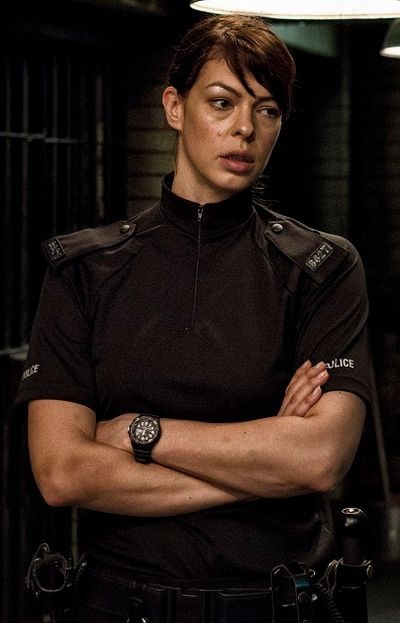
 I’m not religious, but I do enjoy a good religious movie. Say what you like about the Bible, it has some great stories, and inspiration for a ton of others [some day, I want to see the Book of Revelations filmed by Paul Verhoeven]. This certainly falls into the latter camp, but the small cast and claustrophobic settings work for it very well. On the way to take up a new post at a police station in a small Scottish town, Rachel (McIntosh) witnesses a pedestrian being hit by a joy-riding teenager, though the victim is nowhere to be found. Taking the perp to the station, the victim (Cunningham), known only as “Six” (after his eventual cell number), is located and brought to the station: but the doctor brought in to check his wounds tries to kill him. It becomes clear that Six knows a lot more, not just about Rachel, but her new boss Sergeant MacReady (Russell), and the other inhabitants of the station, on both sides of the bars. That’s dangerous knowledge, since some of those are definitely not intended for public consumption. Rachel, whose secret involved hurt done to rather than by her, has to figure out Six’s agenda – Devil? Angel? Bit of both? – to survive the night.
I’m not religious, but I do enjoy a good religious movie. Say what you like about the Bible, it has some great stories, and inspiration for a ton of others [some day, I want to see the Book of Revelations filmed by Paul Verhoeven]. This certainly falls into the latter camp, but the small cast and claustrophobic settings work for it very well. On the way to take up a new post at a police station in a small Scottish town, Rachel (McIntosh) witnesses a pedestrian being hit by a joy-riding teenager, though the victim is nowhere to be found. Taking the perp to the station, the victim (Cunningham), known only as “Six” (after his eventual cell number), is located and brought to the station: but the doctor brought in to check his wounds tries to kill him. It becomes clear that Six knows a lot more, not just about Rachel, but her new boss Sergeant MacReady (Russell), and the other inhabitants of the station, on both sides of the bars. That’s dangerous knowledge, since some of those are definitely not intended for public consumption. Rachel, whose secret involved hurt done to rather than by her, has to figure out Six’s agenda – Devil? Angel? Bit of both? – to survive the night.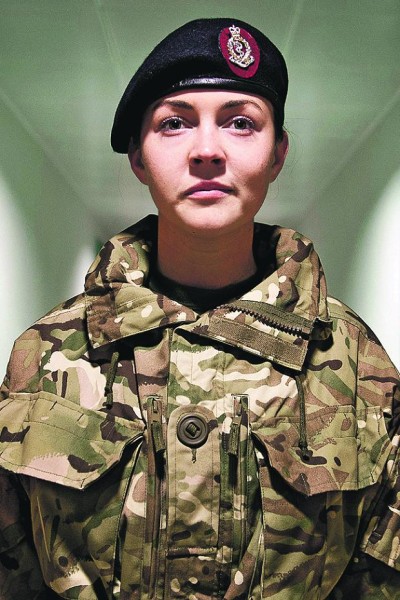
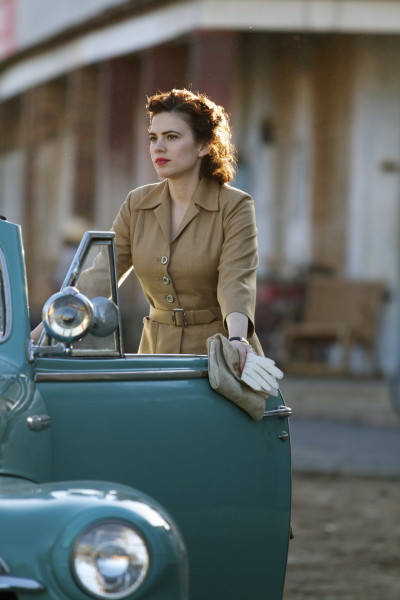
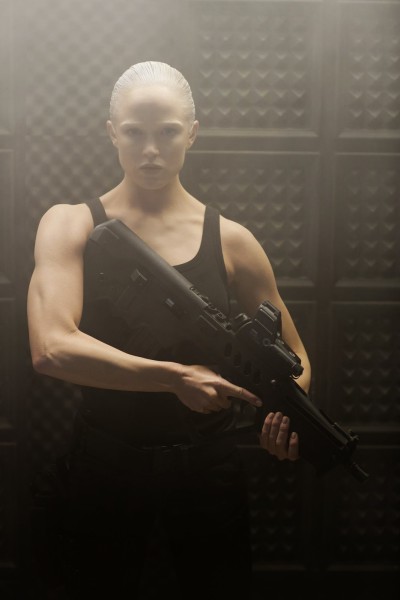
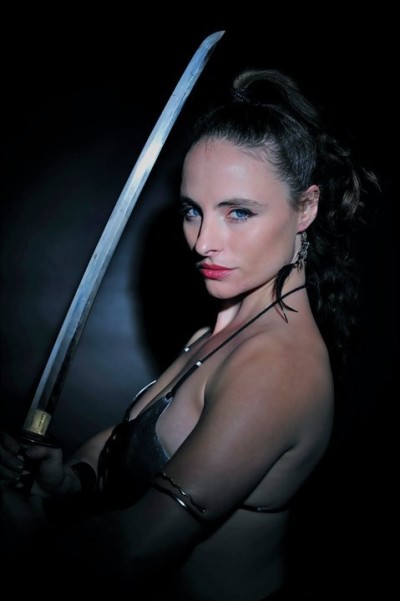
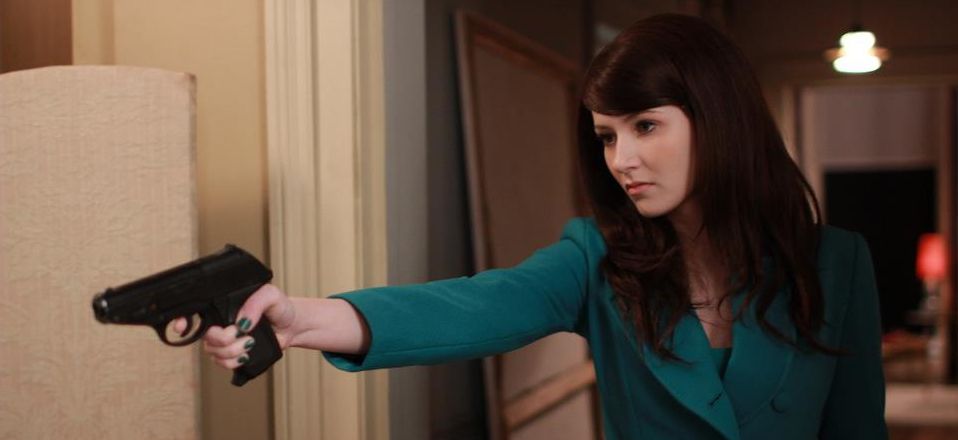

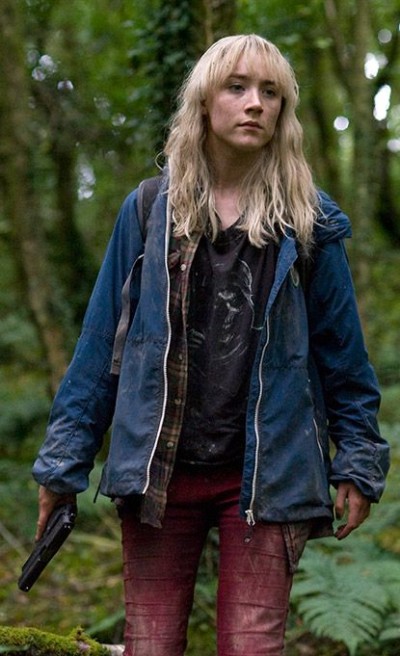
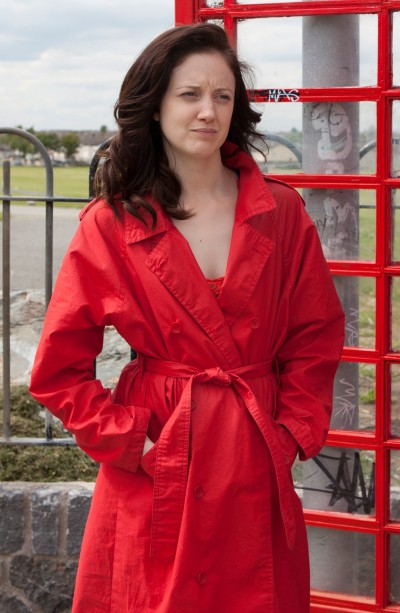 It’s 1993, and the peace process in Northern Ireland is cautiously inching forward – though there are some who prefer a more robust method of rebellion, shall we say. Among them is Collette McVeigh (Riseborough) whose little brother was killed by the British Army when she was 12. Along with her brothers Gerry (Gillen, whom you’ll know as Littlefinger from Game of Thrones) and Connor, she is part of the armed struggle, until a mission to plant a bomb in London leads to her capture. MI5 officer Mac (Owen) gives her a stark choice: face a long stretch in prison, separated from her children, or become an informer on her own family. Collette chooses the later, perhaps influenced by Mac showing her it was an IRA sniper who killed her brother. But it soon becomes clear more is at play, with Mac’s boss (Anderson) apparently intent on sacrificing Collette, in order to protect another, more valuable asset.
It’s 1993, and the peace process in Northern Ireland is cautiously inching forward – though there are some who prefer a more robust method of rebellion, shall we say. Among them is Collette McVeigh (Riseborough) whose little brother was killed by the British Army when she was 12. Along with her brothers Gerry (Gillen, whom you’ll know as Littlefinger from Game of Thrones) and Connor, she is part of the armed struggle, until a mission to plant a bomb in London leads to her capture. MI5 officer Mac (Owen) gives her a stark choice: face a long stretch in prison, separated from her children, or become an informer on her own family. Collette chooses the later, perhaps influenced by Mac showing her it was an IRA sniper who killed her brother. But it soon becomes clear more is at play, with Mac’s boss (Anderson) apparently intent on sacrificing Collette, in order to protect another, more valuable asset.